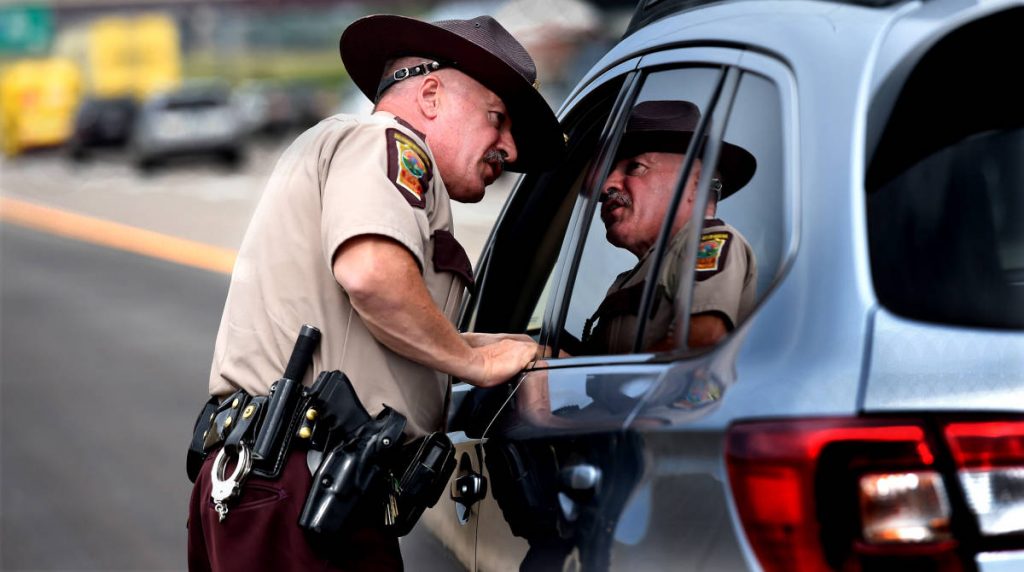
Illinois Traffic Stop Conduct for Motorists
Pull over at the first safe place – Immediately
If you see police lights in your mirror, pull over as soon as possible in a safe, well-lit place that won’t put you, or the officer at risk. Turn off your engine and radio, and have your passengers keep quiet. While the officer reviews your information in his car, quickly review this Guide (without fumbling or digging to find it) to reduce your chances of getting a ticket.
As the officer approaches your car – Keep your hands visible
The officer does not know you and is nervous when approaching your car. A number of officers get shot every year on routine traffic stops. To help alleviate his fear, roll down your window, and place your hands spread out on either the steering wheel, or on your door. Do not make any sudden moves. Wait to get your license and insurance when asked to do so by the officer. If your insurance card is in the glove box, ask the officer if you may open the glove box to retrieve it.
Stay calm & courteous
Be friendly to the officer, they are only doing their job. They are much more likely to issue a ticket(s) if you are being rude or belligerent.
DO NOT Admit Guilt
Many police cars have video cameras and audio recorders. What you say or do may be recorded, and can be used in court. For instance, if the officer asks, “Do you know why I stopped you?” your reply should be “I’m not sure why, officer.”
DO NOT Make Excuses
Making excuses will not get you out of a ticket and can be taken as an admission of guilt. The officer has probably heard it all anyway. In particular, do not make up a story to explain your alleged violation as it can come back to haunt you in court.
Ask for a Warning
If the officer has not begun writing a ticket, yet states that you have violated the traffic law, ask for a warning. Without admitting guilt, inform the officer that you try to be a courteous and law-abiding driver and that you would appreciate a warning instead of a ticket.
What do I do if I’m issued a ticket?
Take a few minutes to write down exactly what happened. Record the date, time, place, weather, traffic conditions, officer’s name, badge number and note any inconsistencies in the officer’s reason for stopping you. Don’t worry about signing the ticket; it is not an admission of guilt. Refusing to sign the ticket can become grounds for the officer to arrest you.
DISCLAIMER: All information contained herein is provided for the purpose of providing basic information only and should not be construed as formal legal advice. The authors disclaim any and all liability resulting from reliance upon such information. You are strongly encouraged to seek professional legal advice before relying upon any of the information contained herein. Legal advice should be sought directly from a properly retained lawyer or attorney.
